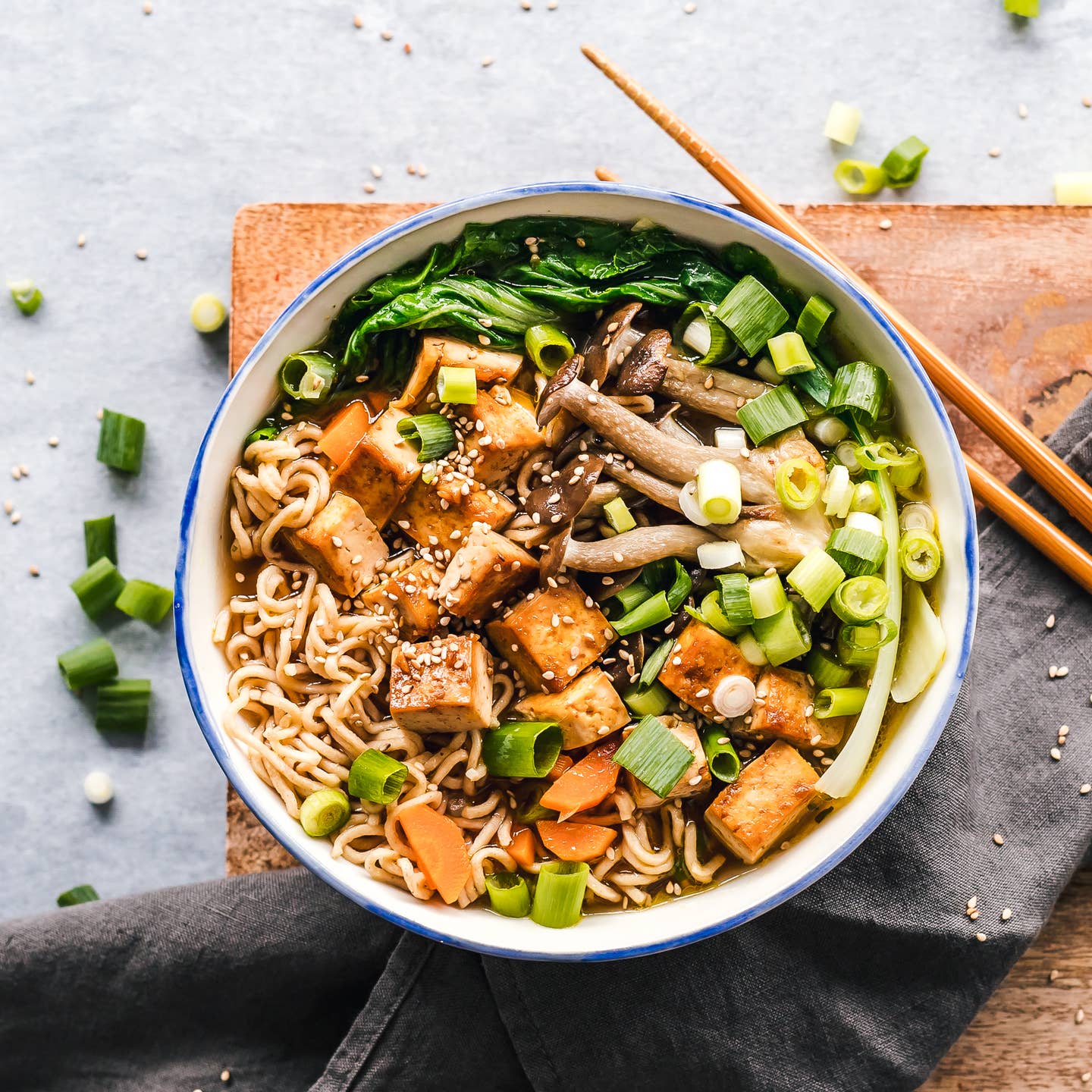
Eating Tofu May Lower Risk of Heart Disease By Up to 18 Percent, According to a New Study Out of Harvard
Everyone get on board with the idea of tofu stirfry tonight: A new study out of Harvard's T.H. Chan School of Public Health in Boston found that eating tofu and other soy foods with high levels of isoflavones (also known as plant-based "phytoestrogens") appear to lower your lifetime risk of heart disease. The benefit was most pronounced among women.
In case your mind immediately jumps to: But isn't it bad for me if I have breast cancer in my family? The Beet asked doctors their best advice and discovered that the latest research indicates a modest amount of soy, up to two servings a day, may actually be protective against breast cancer. The full story relates to the fact that the phytoestrogens may keep your body's own production of estrogens in check.
"Other human trials and animal studies of isoflavones, tofu, and cardiovascular risk markers have also indicated positive effects, so people with an elevated risk of developing heart disease should evaluate their diets," said the study's lead author, Dr. Qi Sun, a researcher at the Chan School.
Sun's research team tracked more than 200,000 Americans enrolled in existing health and nutrition studies and found that eating tofu more than once a week lowered the risk of heart disease by 18 percent. All of the subjects of the study were free of cancer and heart disease when the studies began. Among those observed, eating tofu fewer than once a month still saw a reduction of heart disease risk of 12 percent, on average. So even a small amount of tofu appears to help.
The benefit of eating tofu on a regular basis (more than once a week) was seen primarily in premenopausal women or those who were post-menopausal but who weren't taking hormones, according to the study published in the medical journal Circulation.
"Despite these findings, I don't think tofu is by any means a magic bullet," Sun said in a news release. "Overall diet quality is still critical to consider, and tofu can be a very healthy component."
"If their diet is packed with unhealthy foods, such as red meat, sugary beverages and refined carbohydrates, (people) should switch to healthier alternatives," he added. "Tofu and other isoflavone-rich, plant-based foods are excellent protein sources and alternatives to animal proteins."
Tofu is made of soybean curd, and whole soybeans or edamame are also rich sources of isoflavones. Other foods that are great sources of isoflavones include chickpeas, fava beans, pistachios, peanuts, and fruits and nuts.
Soymilk is another source but Dr. Sun warned against getting all your isoflavones from milk since it tends to be highly processed and sweetened with sugar, The study found no significant association between soymilk consumption and lower heart disease risk.
Sun added that many other factors can affect heart disease risk, including exercise, family history and lifestyle habits, he noted.
"For example, younger women who are more physically active and get more exercise tend to follow healthier, plant-based diets that may include more isoflavone-rich foods like tofu," Sun added. The most important factor may be a diet lower in red meat, along with the increase in tofu as a preventative dietary choice.
More From The Beet






